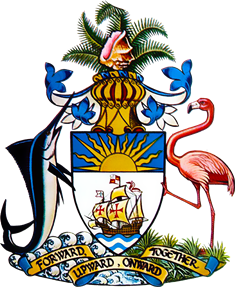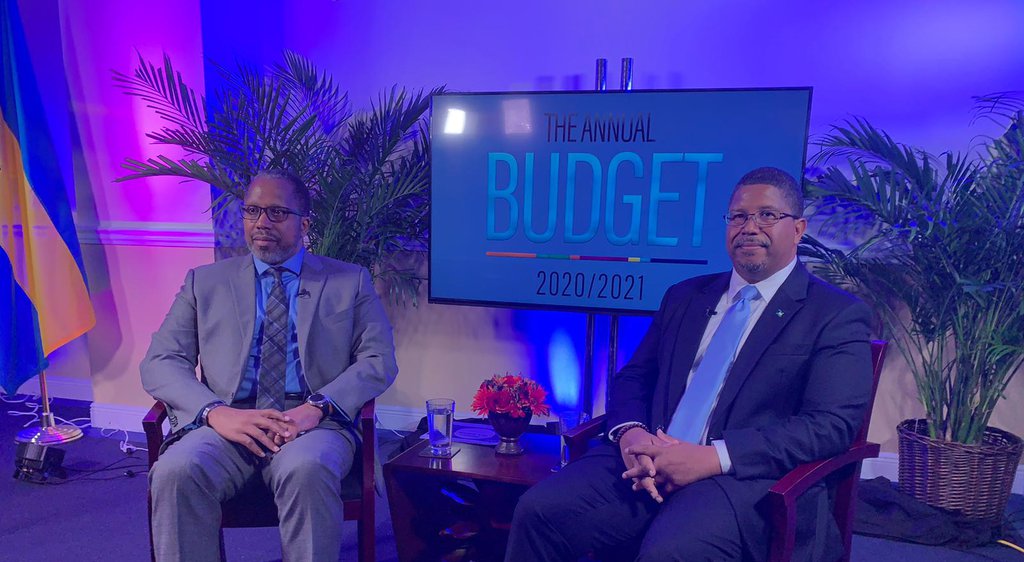Good Afternoon Bahamas.
Today marks the third year since we started this tradition of hosting a post-budget press conference to engage with our partners in the media and the public. We view these public education efforts as part of our responsibility to make the budget more accessible to the Bahamian people.
By their nature, budgets and the process and documents around fiscal affairs and public financial management involve complex technical reports and jargon that can be difficult to understand, even by those of us who have studied business, accounting, or finance. Therefore, as part of our commitment to transparency and accountability, the team at the
Ministry of Finance has gone to new lengths to engage in public education activities, and we hope that the standard that we have set over the past three years will remain long beyond our time.
Today, my remarks will be brief, as I know the media have many questions, and I have asked the Acting Financial Secretary to make a presentation on the key standing priorities included in the Budget.
When I presented the Budget Communication yesterday, I emphasized that the new budget is fundamentally about providing support for the people of The Bahamas, restoring our economy, and transforming this ongoing crisis into new opportunities for our nation. Our economy has been weakened by the double impact of two historic events. While we will bounce back with a foundation for a stronger, more resilient, and sustainable economy and society, we need a plan and strategy to take us there.
What I hope I was clear in my communication yesterday, and what we will reinforce over the course of the Budget Debate, is that we have a carefully designed plan to guide the country through this ongoing public health and socioeconomic crisis.
It is important to understand that ‘Resilient Bahamas: A Plan for Restoration’ provides solutions for the country in the immediate and sort-term. The budget covers a 12-month cycle, and as I have emphasized, our full economic recovery will take time. That is why the Economic Recovery Committee (ERC) has been charged with the mandate to map out the full recovery plan. The actions we take in the new budget, will create a pathway to restore what has been lost by these unprecedented external economic shocks. It will make us prepared and ready to fully participate in the economic recovery.
COVID-19 is affecting everyone in the country and around the world. The recent catastrophic events that have rocked The Bahamas delivered the fastest, deepest economic shock The Bahamas has ever experienced. The Bahamas’ real GDP is projected to decline by 12%, Global output for 2020 is expected to be far worse than the 2008/2009 financial crisis.
Added pressure on Government revenues is enormous. Government’s contributions to the economy are a vital lifeline given the complete shutdown of tourism and the domestic economy. For these reasons, the Government had to shift from its policy of fiscal consolidation to Resilient Bahamas.
Fiscal consolidation was all about taking public finances towards a balanced position overtime through revenue enhancement and expenditure containment. While the economy was in growth mode, the Government took the necessary steps to ring down the deficit and create a plan to contain our debt growth. We did this with great success, establishing a track record of deficit reductions and fiscal responsibility.
However, there is a substantial cost to implementing the Resilient Bahamas Plan. I would have mentioned, we are projecting a deficit of $1.3 billion. We are not sugar coating the cost. However, we passionately believe the prospect of doing nothing – or of doing too little – would lead us to a much worse fate. Governments around the world are shifting policies towards providing economic relief to mitigate the impact of the pandemic. This is the Government’s responsibility in times of crisis.
Resilient Bahamas provides solutions now to protect families, communities, and businesses, and to restore the economy. Its three core objectives are:
- To engender wellbeing and confidence to our citizens and residents
- To maintain economic stability during the COVID-19 induced crisis
- To plant seeds for accelerated recovery
The fiscal policies and other initiatives that are included in the Resilient Bahamas plan will deliver a nation restored from the ashes of the crisis, prepared and ready to drive the economic recovery.
The biggest set of twin setbacks in the last 100 years calls for the biggest fiscal response in 100 years! While we pray that we will not face compounding challenges like this again, we are prepared to face, head on, the hardships of this moment.
- There is expanded social support in the new budget to care for the vulnerable.
- There is direct cash assistance in the new budget for temporarily displaced workers.
- There are tax incentives for the construction industry, fishing and agriculture to protect existing jobs, to stimulate new job creation, and to support the private sector.
- The allocations to the public health network were significantly increased to protect Bahamians and improve our national resiliency, including an expansion of free primary care coverage through National Health Insurance (NHI).
- We are accelerating efforts to modernize the Government, reform state owned enterprises and to make government work better for Bahamians.
My hope is that Bahamians are reassured that the Government understands the calling of the times, and we are prepared to make the difficult choices, and lead the necessary cause to move from crisis to opportunity. When we saw better times, we made the difficult decision to reduce the size of Government and enhance our revenues.
Now that we are in a crisis, we are making the decision to protect families, communities, and businesses, and to invest in Resilient Bahamas, to restore our economy.
With that, I will turn over to the Financial Secretary to provide specific details on the core programs and initiatives under the plan, and the overall economic and fiscal context.

